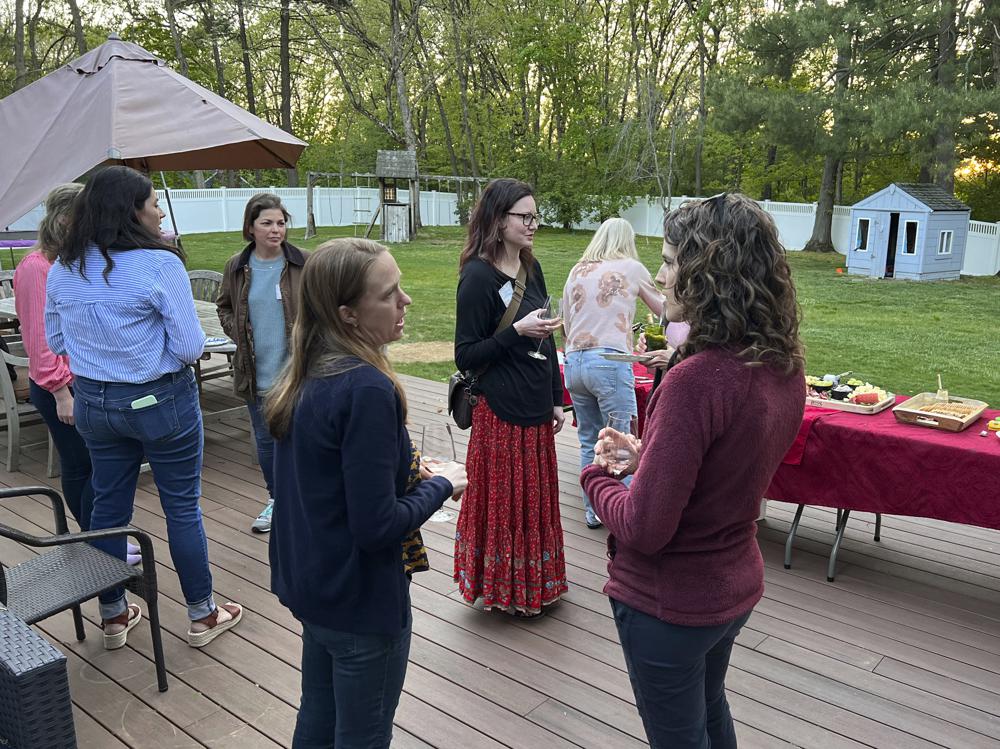They’re known at school as the group of parents who orchestrate everything from Halloween parties to book fairs, but a parent-teacher organization isn’t just for the kids.
Parents join a PTO for all kinds of reasons. It has helped some revitalize career skills, share passions, find job opportunities, and assuage the middle-age friend desert, all while making sure the kids have fun.
“I thought it was important for my kids to see I thought they were important and that their education was important,”′ said Judy Walters, 54, of central New Jersey, recalling her stay-at-home-mom days raising two little girls. “But really, I wanted to meet people and have a life.”
The PTO was where Walters met some of the people she still considers best friends.
“I got close to a number of my room-mom people, and I met a lot of parents who I wasn’t close to but still really liked and enjoyed,” she says.
PTO is a common acronym for the group of parents and teachers who work together to fundraise, plan activities and provide extra enrichment for students. The term can be used interchangeably with the Parent Teacher Association, a national nonprofit headquartered in Alexandria, Virginia, or the PTC, or parent-teacher council.
As kids return to school this fall, you might see flyers or emails pleading for parents to get involved. PTOs play an important role as school boards face tough budget choices, particularly for “extras” non directly related to the curriculum.
Especially as schools and families emerge from pandemic lockdowns, people are looking for ways to connect. PTOs can provide that at a time in life when making new friends typically slows down because of work and family.
Sara Dean, 46, signed up for her school’s PTA, nervous about assimilating into what she saw as an established group. But by spring, she was happy to have made new friends.
Dean hosts the podcast “The Shameless Mom Academy,” which discusses women’s empowerment, and balancing parenthood and work. She devoted an episode to what she learned from working as the PTA president at her child’s school outside Seattle.
“The opportunities for bonding happen quicker,” she said of working on the PTA. “There is more comradery and ease of building relationships that I wasn’t expecting but that was a lovely experience.”
She also didn’t expect to pick up career-building skills.
Dean was used to working independently, as a writer and podcast host and producer. As PTA president, she was thrown into building teams, helping everyone get along, and finding resolutions to problems the school faced — skills that could easily translate into corporate America or the world of nonprofits.
“That’s not why I signed up but it’s a benefit that is really cool,” she said.
The same goes for Colleen Nolan, 46, of Newton, Massachusetts. The eight years she spent working various roles on an elementary school PTO led, she said, to two nonprofit board positions — at a city food bank and a neighborhood improvement group — and a paid, part-time position as a records keeper.
“I met people in the neighborhood and, over the years, they recognized me as someone who was a `doer,’” Nolan said. “People saw me as someone who could answer questions and they used me as a resource.”
Many parents bring their passion projects to the PTO, said Andy Garlick, an elementary school principal in Needham, Massachusetts. These might include personal finance, diversity, or cultural customs from another country, for example. Parents bring what they know to the table.
“There’s a lot of people who want to use the minimal free time they have to do good in their community,” he said.
There are criticisms and jokes, of course. In the 2018 comedy “Bad Moms,” Christina Applegate and Mila Kunis spar over who is the better PTA presidential candidate. And the Netflix series “Ginny & Georgia” shows a snooty mother from “Wellsbury, Massachusetts” arguing with an outsider from Texas about how to best raise money for the PTA.
In reality, wealthy neighborhoods tend to have far more parental involvement and fundraising power than areas without such affluence. This leads to more enrichment opportunities for students, and more educational necessities like books or tech gadgets. Some argue it compounds inequities in the U.S.
And PTO parents often spend their own money. Some organizations have dues and others don’t, but many parent volunteers end up paying for projects and events.
Kimberly Rae Miller, 39, of Suffolk County, New York, joined the PTA to become more involved and was surprised to find how much money it required out of her own pocket.
But, she said, “If you have the time and financial resources to participate, it’s a great way to have access to a part of your children’s life that you don’t always have access to.”
AP







